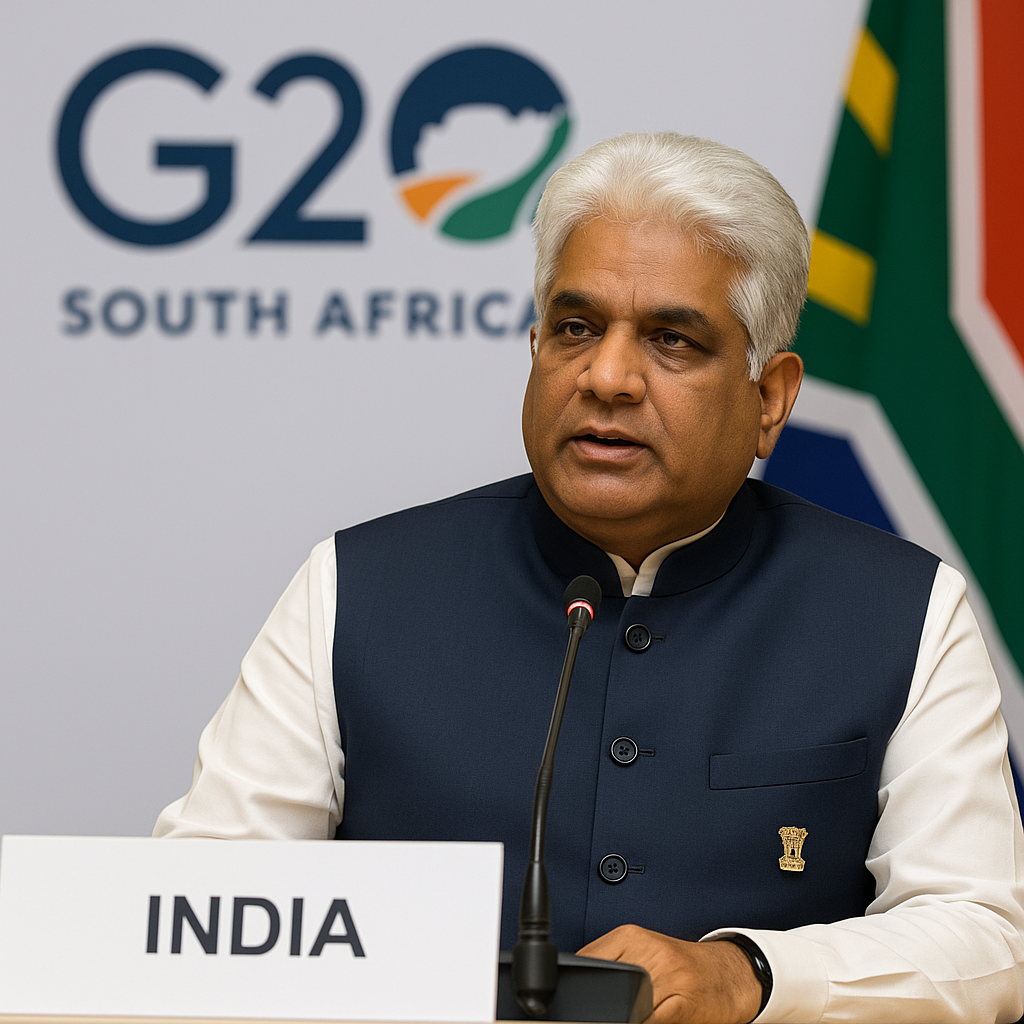Cape Town, South Africa — Union Minister for Environment, Forest and Climate Change, Shri Bhupender Yadav, emphasized that climate finance, technology, and capacity-building remain at the core of achieving a fair and equitable transition across all sectors. He was delivering India’s statement at the G20 Climate and Environmental Sustainability Working Group Ministerial Meeting held in Cape Town.

Congratulating the South African Presidency for identifying six thematic priorities that address the interconnected challenges of biodiversity, ocean health, and sustainability, Shri Yadav reiterated India’s strong support for ecosystem-based approaches, participatory implementation, and landscape-level conservation models.
Biodiversity and Conservation
Yadav highlighted that while biodiversity has immense value, there is a need to exercise caution in commodifying natural resources. He advocated for a deeper examination of how biodiversity can be conserved without commercial overexploitation.
Land, Water, and Restoration
On land degradation and water sustainability, India welcomed the global recognition of land restoration as both an economic and ecological opportunity. Shri Yadav proposed a “G20 Knowledge and Solution Exchange Platform” to promote co-developed, non-restrictive technology transfer and sharing of best practices. He underscored the importance of voluntary and flexible global standards, particularly those empowering women, youth, and small farmers.
Circular Economy and Waste Management
Praising the G20’s emphasis on the circular economy, the Minister cited India’s Extended Producer Responsibility (EPR) framework as a scalable global model. He asserted that global frameworks for managing chemicals and waste must remain voluntary and nationally determined, to prevent undue burdens on developing economies and SMEs. He further cautioned against linking trade measures or enforcing prescriptive technology standards in the waste sector.
Also Read: 27-Point Action Plan Under Stage-I of GRAP Enforced Across NCR to Prevent Air Quality Deterioration
Climate Change and Just Transition
Underlining India’s stand on equity and Common but Differentiated Responsibilities (CBDR), Shri Yadav reiterated the need to integrate climate action with development priorities. He emphasized that financial, technological, and capacity-building support must be ensured for developing nations to enable a just and inclusive transition.
Oceans, Coasts, and Marine Transport
India also supported Marine Spatial Planning for sustainable coastal development and biodiversity conservation. Shri Yadav called for voluntary approaches to tackle Abandoned and Lost Fishing Gear (ALFG) while safeguarding the livelihoods of small-scale fishers. He emphasized that the decarbonization of marine transport should align with the principles of equity and climate justice, acknowledging each nation’s unique context and resources.
Commitment to Global Collaboration
Concluding his address, the Minister extended his best wishes for the continued progress of the G20 under South Africa’s leadership and expressed India’s commitment to building on the collective progress and advancing actionable outcomes under the upcoming presidency.
Source: PIB
Also Read: 17th GRIHA Summit 2025 to Focus on Climate-Resilient Innovation and Action
